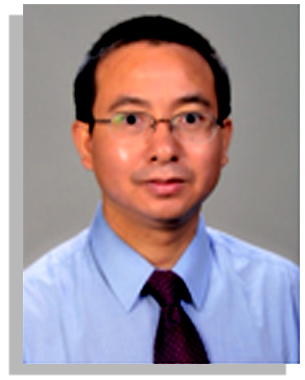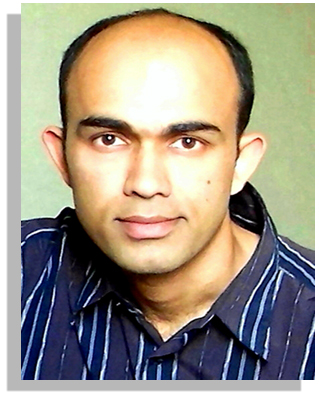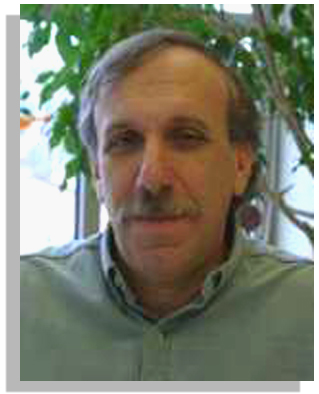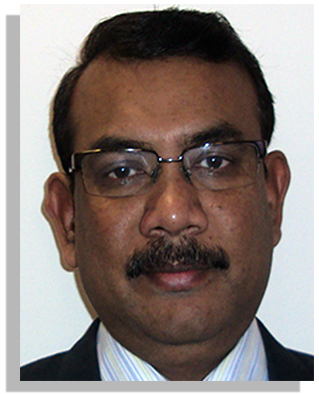JBAS
Executive Editor- Profile
 Shufeng Zhou MD., Ph.D.
Shufeng Zhou MD., Ph.D.
Current Status
Associate Vice President
Global Medical Development
Associate Dean of International Research,
Colleges of Pharmacy& Medicine
University of South Florida (USF)
12901 Bruce B Downs Blvd., Tampa, FL 33612.
Dr Zhou is presently a Professor of Pharmacology and Molecular Medicine, Associate Vice President of Global Medical Development, Associate Dean of International Research, and Chair of the Department of Pharmaceutical Sciences, Colleges of Pharmacy and Medicine, University of South Florida, Tampa, Florida. His major duties are to expand the medical programs of USF and help build up several centers of advanced medical learning and simulations in China and India with USF as the key partner. Another major duty for him is to manage all research-related things for the College of Pharmacy, USF.
Professor Zhou completed his clinical medical training in China in 1989 and obtained his PhD in 2001 from the School of Medicine, the University of Auckland, New Zealand. Since 2002, After 2 years’ postdoctoral training in the University of Auckland, Dr Zhou has served as an Assistant Professor, Senior Lecturer, Associate Professor and Professor for the National University of Singapore, Queensland University of Technology (Australia), and RMIT University (Australia). Dr Zhou’s major research interests are systems pharmacology, drug metabolism &drug transport, pharmacokinetics &pharmacometrics,pharmacogenomics,nanomedicine and Chinese medicines.
Professor Zhou has published more than 320 peer-reviewed papers in various pharmacology and medical journals includingNew England Journal of Medicine, Cancer Research, Journal of Biological Chemistry, Clinical Pharmacology and Therapeutics, and Clinical Cancer Research. He has also published 16 books and book chapters and more than 270 conference abstracts. His work has been cited more than 7,300 times by other colleagues with an H-index of 43. Dr Zhou has given more than 100 invited seminars/keynote presentations to a variety of academic institutes, government agencies, and high-profile international conferences. He has received more than US$25.0 million grants from various funding bodies and industries.
To date, he has trained 24 PhD students, 12 MSc/Honors students, 14 postdoctoral staff and 15 visiting doctors. Dr Zhou serves as an editor-in-chief or editor for 8 medical journals includingDrug, Healthcare and Patient Safety, Clinical Pharmacology & Biopharmaceutics, Journal of Pharmacogenomics and Pharmacoproteomics, Drug Metabolism Letters, WMC (WebmedCentral) plus Pharmaceutical Sciences, and Current Drug Metabolism and is the editorial board member of 25medical and pharmacological journals.
He is a recipient of several internal and international awards, a member of several national and international professional societies, and a visiting/adjunct professor of multiple reputable research universities around the world.
Executive Editor- Profile
 Sandeep Kumar Vashist Ph.D.
Sandeep Kumar Vashist Ph.D.
Current Status
Head of Immunodiagnostics
Hahn-Schickard-Gesellschaft für angewandte Forschung e.V. (HSG-IMIT)
Georges-Koehler-Allee 103
79110 Freiburg, GERMANY
Sandeep K. Vashist is the Head of Immunodiagnostics at HSG-IMIT, Germany, where he is working on the development of clinically-relevant diagnostic kits, bioanalytical sciences and lab-on-a-chip technology. He completed his doctorate on BioMEMS-based microdiagnostic kit from Central Scientific Instruments Organisation, India in 2006. From 2006-2009, he worked as a Scientist in Bioanalytical Sciences at Bristol-Myers Squibb Pharmaceutical Company, Ireland, where he developed bioanalytical platforms and technologies for the rapid detection of biopharmaceutical analytes and disease biomarkers. Thereafter, from 2009-2012, he was the Team Leader at NUS Nanoscience and Nanotechnology Initiative, Singapore, where he developed several proprietary technologies for diabetic monitoring. He has successfully accomplished many technology transfers (>25) to industries and healthcare; published extensively in topmost high impact-factor (IF) journals (like Nature Protocols, Anal Chem, Anal Biochem, Analyst, Carbon, Talanta, Biotech Adv, Biosens Bioelectron); filed several patents; and, presented at highly prestigious conferences. He has constantly received many international awards from renowned institutions such as University of Leeds, UK; awarded for scientific research excellence, innovation and performance; bestowed with invited membership of RCS; and, received highly prestigious research fellowships. He is the international expert and reviewer for more than 36 journals (with IF ranging from 4 to 41; in the fields of bioanalytical sciences, biochemistry, diagnostics, biosensors, point-of-care devices, analytical chemistry, nanotechnology and lab-on-a-chip technology) and many funding agencies.
Executive Editor- Profile
 Joseph J. BelBruno B.S., Ph.D.
Joseph J. BelBruno B.S., Ph.D.
Current Status
Professor
Department of Chemistry
Dartmouth College,
6128 Burke Laboratory
Hanover, NH 03755, USA
Joseph J. BelBruno is Professor of Chemistry at Dartmouth College. He received a B.S. degree in Chemistry from Seton Hall University and a Ph.D. in Physical Chemistry from Rutgers (New Brunswick) University. He has been a Visiting Professor at NTNU, Trondheim and an Alexander von Humboldt Fellow at the Technical University in Munich. He is the author or co-author of more than 130 publications and 9 patents. Professor BelBruno serves on the editorial boards of several chemistry and nanotechnology journals. Past research efforts have included laser-driven chemistry and spectroscopy in molecular beams. His current research interests are focused on new materials and processes at the nanoscale. These include experimental and computational aspects of imprinted polymers, sensor development and gas–surface interactions.
Executive Editor- Profile
 Abdul Shukkur Ebrahim B.Sc., M.Sc., M.Phil., Ph.D.
Abdul Shukkur Ebrahim B.Sc., M.Sc., M.Phil., Ph.D.
Current Status
Research Scientist,
Dept. of Internal Medicine-Hematology / Oncology
Wayne State University and School of Medicine,
Detroit, MI 48201,
USA.
B.Sc. in Biochemistry (University of Madras, Chennai, India)
M.Sc. in Biochemistry (University of Madras, Chennai, India)
M.Phil. in Biochemistry (University of Madras, Chennai, India)
Ph.D. in Biochemistry (University of Madras, Chennai, India)
Dr. Ebrahim, currently a Research Scientist at Wayne State University School of Medicine, has worked on the identification of novel biomarkers in Lymphoma stem cells, using a high-throughput proteomic approach 2-D Fluorescence Difference Gel Electrophoresis (2-D DIGE). His specific goal is to identify novel agents in the clinical level for developing novel therapeutic treatment strategies against lymphoma, especially CNS lymphoma (CNSL), Follicular Small Cleavage Cell Lymphoma (FSCCL), Waldenström’s Macroglobulinemia (WM) and Diffuse Large Cell Lymphoma (DLCL) using human samples, cell lines and xenograft mice models. Understanding the molecular pathways involved in the action of chemotherapeutic agents is important in designing new clinical protocols for use in the clinical setting. From 2007-2011 as a Research Associate at Mayo Clinic Jacksonville, he studied the pathological mechanisms of Alzheimer's disease, Parkinson’s disease and Corticobasal degeneration (CBD) with special emphasis on mitochondrial dysfunction and protein abnormalities in human brain tissues, rTg4510 mouse brain and alpha-Synuclein cell line models. Dr.Ebrahim continued to make contributions to the field, another noteworthy one being the identification of astrocyte associated LC ferritin as a biomarker for the neurodegenerative disease CBD using a high throughput 2D-DIGE technique. As a Research Scientist, at The RIKEN Brain Science Institute, Japan in the year 2002-2007, he studied the tau protein biochemistry, oxidative stress and mitochondrial dysfunctions in a mouse model of Down syndrome Ts1Cje and Ts2Cje. His work showed in an unbiased manner that Down’s syndrome and Alzheimer’s disease share common pathways of neurodegeneration and that modified brain proteins markers contribute to cognitive dysfunction and neurodegenerative processes occurring in DS. Dr. Ebrahim received an award MEXT Grants-in-Aid for scientific research (KAKENHI) from the Government of Japan. These grants are highly competitive in Japan and to have received a KAKENHI is a great honor! Dr. Ebrahim Abdul Shukkur was the recipient of Science and Technology Agency award (STA fellow award) from the Japan International Science and Technology Exchange Center (JISTEC) from 2000-2002. This again is a highly competitive national award that he received following studies on the cloning and characterization of a novel tumor suppressor gene (m-Kank) using a mouse genomic library.





















